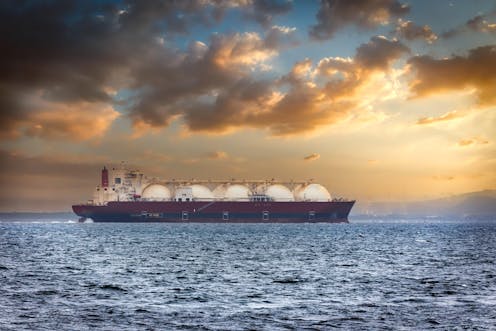Why are gas prices still high despite oil getting cheaper – and what will happen next? Energy expert Q&A
- Written by Adi Imsirovic, Senior Research Fellow, Oxford Institute for Energy Studies, University of Surrey

While thermometers have been well into the red across the northern hemisphere, people are panicking about the cost of energy bills once winter starts to bite. According to the latest forecasts[1] in the UK, the minimum price cap for households’ electricity and heating costs is set to more than double over the winter.
Other commentators have suggested[2] that these fears are being overdone, and that the weakening global economy and moves to fix energy supply issues will bring down prices. We asked energy expert Adi Imsirovic for his view on where things are heading.
The price of oil has been falling recently – why?
Energy prices don’t like two things: recessions and higher interest rates. At present, the prospects for the global economy are getting gloomier[3] and interest rates[4] are going up.
When interest rates are low, speculators can borrow money cheaply to make bets on energy prices going up, but this becomes less attractive as rates rise. Commodities also always have the disadvantage that you are not paid to hold them, unlike dividends on shares or interest payments on bonds.
The yields on these other assets tend to go up when interest rates rise, which makes commodities relatively less attractive to investors. Even compared to another commodity like gold, oil is much more expensive to store, so you are also paying a lot to hold the investment.
Brent crude (US$/barrel)







